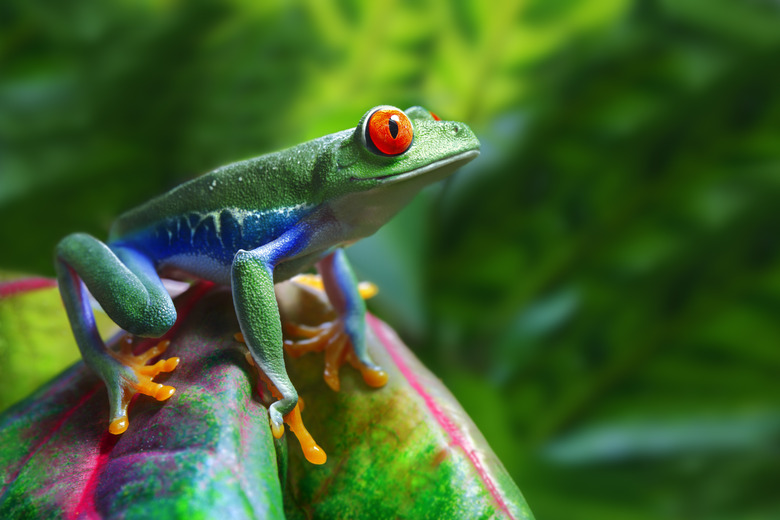The Importance Of Species Diversity To The Ecosystem
According to the Encyclopedia of Earth, species diversity is a measurement of an ecosystem's species richness and species evenness. If an ecosystem has poor species diversity, it may not function properly or efficiently. A diverse species assemblage also contributes to ecosystem diversity.
Species Richness
Species Richness
Species richness is the number of different species an ecosystem. Environments that can support large numbers of species, such as tropical areas, tend to have greater species richness.
Species Evenness
Species Evenness
The Encyclopedia of Earth defines species evenness as "the variation in the abundance of individuals per species within a community." If a community has a large disparity between the number of individuals within each species it has low evenness. If the number of individuals within a species is fairly constant throughout the community it has a high evenness. If community A has 10 individuals divided between two species, but species 1 represents nine individuals, while species 2 has only one, then community A has a low evenness and lower species diversity. If community B has ten individuals divided between two species, with species 1 having four individuals and species 2 having six, then community B has high evenness and higher species diversity. The more even the number of animals per species within an ecosystem, the greater the species diversity.
Ecosystem Efficiency
Ecosystem Efficiency
A study from the University of Maryland suggests that by increasing species diversity in an ecosystem, both the efficiency and the productivity of an ecosystem will increase. The study "increased the [species] richness...such that the feeding success of individuals [was] enhanced." A greater species richness and diversity may cause ecosystems to function more efficiently and productively by making more resources available for other species within the ecosystem.
Keystone Species
Keystone Species
Keystone species play an important role, both in maintaining species diversity and the health of an ecosystem. A keystone species is an organism that helps maintain species diversity within an ecosystem by keeping the numbers of other species in an ecosystem constant. By not allowing one species or another to become overly dominant, a keystone species maintains species diversity and ecosystem integrity. An experiment conducted in 1969 by Robert Paine observed that if a predatory species of starfish was removed from an ecosystem, it allowed two different species of mussels to outcompete the other species in the ecosystem and reduce species diversity.
Invasive Species
Invasive Species
An invasive species is a foreign species that is introduced to an ecosystem. The Center for Invasive Species and Ecosystem Health states that "these species grow and reproduce rapidly, causing major disturbances to the areas in which they are present." Invasive species outcompete other species for food and habitat. Since the indigenous species can't compete, they either are forced to leave the ecosystem or die out. If an invasive species forces out too many other species, the species diversity will drop, which could cause an ecosystem to function inefficiently or fail.
Cite This Article
MLA
Balun, Robert. "The Importance Of Species Diversity To The Ecosystem" sciencing.com, https://www.sciencing.com/importance-species-diversity-ecosystem-6508788/. 22 November 2019.
APA
Balun, Robert. (2019, November 22). The Importance Of Species Diversity To The Ecosystem. sciencing.com. Retrieved from https://www.sciencing.com/importance-species-diversity-ecosystem-6508788/
Chicago
Balun, Robert. The Importance Of Species Diversity To The Ecosystem last modified August 30, 2022. https://www.sciencing.com/importance-species-diversity-ecosystem-6508788/
